- Home
- Janet Dailey
Something More Page 9
Something More Read online
Page 9
Last night his fantasies had taken him all over the ranch, finding the gold one time in this place, the next time in a different area. In his mind, he had even played the role of prospective buyer, looking over various properties to locate the ranch of his dreams. He even imagined himself giving orders to ranch hands instead of being the one to take them.
Tobe West, rancher. He liked the ring of that.
Suddenly it didn’t seem such a far-off thing. Why, all he had to do—
Dulcie gave his shirtsleeve a tentative tug, interrupting his daydreams. “Can we sit down, Tobe?” she whispered anxiously, worried that any minute people would turn around in their seats and see them standing back there. It would mortify her.
Irritated for no good reason, Tobe nodded curtly and started to shove his hat on, then remembered in time where he was and waved his sister toward a row of empty folding chairs in the rear. She took a step toward them, then looked back to make sure he was coming. Stifling a sigh of impatience, Tobe gripped her shoulder and steered her to the chairs.
Dulcie moved halfway down the row before she sank onto a seat directly behind the rancher Joe Gibbs, confident his bulk would hide her. Papers crackled beneath her. Reddening, she slid off the chair and the papers slid off with her, seesawing through the air before settling to the floor. She scurried to gather them up, then climbed back onto her seat. Head bowed, she worked studiously to smooth away the creases in the program and music sheets, painfully conscious of the exasperation in Tobe’s face.
As the hour drew near for the worship service to begin, a hush spread through the small congregation. In the gathering stillness, the click of a turning latch sounded loud. Sunlight flooded through the now-opened door, and heads turned to take note of the latecomer.
Even Dulcie looked, pity welling in her heart for the recipient of all the curious stares. It was the lady from last night, the one called Angie. And she didn’t appear to be the least bit bothered by all the attention, smiling an easy apology for her tardiness to the group before she made her way to the nearest chair.
She paused when she saw Tobe’s hat on the seat. “Is this taken?” she whispered.
“No.” Tobe almost fell all over himself in his haste to remove his hat from the chair. When she sat down next to him, he juggled with his hat, the program, and hymn music to get a hand free and shove it toward her. “I’m Tobe West, Miss Sommers,” he whispered, earnest and anxious. “You probably don’t remember, but we met last night. I work at the Ten Bar for Luke McCallister.”
“I remember.” She shook his hand, then leaned forward, flashing a smile at Dulcie and waggling her fingers. “Hi, Dulcie.”
Self-conscious yet secretly pleased that Angie had remembered her name, Dulcie responded with a barely audible, “Hi.” But the tiniest of smiles edged the corners of her mouth.
From the altar area came the strum of a guitar, sounding the opening chord of the first hymn. The minister’s gentle voice sounded almost as musical to Dulcie when he requested, “All rise.”
Feet shifted, clothing rustled, papers shuffled, and throats cleared as everyone stood up. Dulcie stared at the unfamiliar words on her sheet. She tried to sing along, albeit very softly, but she didn’t know the tune. Something told her nobody else did either.
Beside her Tobe mumbled the words and pretended often to lose his place. But Dulcie noticed that Angie’s head was lifted in song. Rarely did she glance at the words on the paper. Her voice, while not particularly strong, had a pleasing sound and seemed to follow some sort of melody. Dulcie decided to copy her. She ended up coming in about half a note behind.
On the “Amen” part, the congregation was of one voice, singing it with relish. Dulcie held her note a little too long, breaking it off abruptly when she realized her voice was the only one still singing. She felt hot all over and blushed when Angie glanced her way with a wink of understanding before bowing her head when the minister began his prayer. Dulcie did the same, then snuck a peek to see if Angie closed her eyes when she prayed. She did, so Dulcie squeezed hers shut, too.
All through the service, Dulcie made furtive checks of the stranger in their midst, the woman everyone was talking about because of the outlaw gold.
Too soon, it seemed, the service was over, and the standing and milling began. This was the part Dulcie hated. She wished they could walk out the door and go home, but Tobe always hung around and talked.
When he stood up, Dulcie rose to her feet with reluctance, resigned to the misery of waiting. “Ma’am?” Reaching out, Tobe caught Angie’s arm when she would have walked away, then jerked his hand back and nervously fingered his hat when she turned around. “Uh, Luke said something about you comin’ out to the ranch this afternoon.”
“That’s right. Around one o’clock.” She seemed mildly puzzled by the conversation.
“Yeah, well, I was thinking, uh . . .” He looked down at his hat and shifted his weight to the other foot.
“Yes?” Angie peered at him, now curious.
He pulled in a deep breath, hesitated, then met her gaze and hurriedly moistened his dry lips. “Well, Dulcie and me are headed back there now. I thought maybe . . . you’d like to ride along with us?”
“That’s very kind of you, but—”
“It’s no trouble,” Tobe jumped in. “And that camper you’re driving—well, the ranch lane is pretty rough. You could bottom out in some of the ruts.”
“Oh.” The single sound held both understanding and the beginnings of concern.
“That’s why I thought it might be better if you rode with us.” Then he rushed, “And don’t worry about gettin’ back. I can easily run you back when you’re through at the ranch. Then Dulcie and me can grab a sandwich and save Fargo from having to fix supper.”
“If you’re sure I’m not putting you out,” she began.
“Oh, I’m sure.” His grin was big and broad.
She smiled in return. “In that case, I’ll accept your offer of a ride.”
“Great.” Still smiling, Tobe shoved his hat on and gave it a tap. “Dulcie and me are ready to leave whenever you are.”
Dulcie couldn’t believe her ears. Was Tobe really going to leave right now—without hanging around to talk? She took another look at the lady. Tobe’s announcement seemed to catch her unaware as well.
“You mean, right now?” she asked, with a surprised jerk of her head, then glanced at her watch. “But Luke isn’t expecting me until one.”
Tobe shrugged off that concern. “Luke’s not gonna mind you being thirty or forty minutes early. He’s not doin’ anything today anyway.”
“In that case”—her smile of acceptance was quick and warm—“just give me a minute to stop by the camper and grab a hat, and I’ll be ready to go.”
“Great!” Excitement thudded in his veins. Scared that she might change her mind between here and there, Tobe said, “We’ll walk along with you. My truck’s parked near your camper anyway.”
Taking her agreement for granted, he motioned for her to precede him, then noticed the jam of people at the door waiting to shake hands with the minister. With no side exit available, they had no choice but to crowd in and hurry people along.
For a moment it looked like his rudeness would be rewarded when the Roushes gave up their place in line. Then Ima Jane waylaid them just as they reached Reverend Firsten, and Tobe almost groaned aloud.
“There you are, Angie. I’ve been looking for you.” Ima Jane reached for Angie’s arm, with every intention of drawing her off somewhere.
But Angie quickly clutched her outstretched hand. “It’s a good thing you caught me. I would have left without thinking to tell you.”
“Left?” Ima Jane repeated, thrown off balance by the statement. “I don’t understand. . . .”
“Tobe’s giving me a ride out to the Ten Bar. I’ll probably see you when I come back.” After a kind of farewell squeeze and pat of Ima Jane’s hand, she turned to the minister. “It was a lovely service, Rever
end.”
A smile and a handshake, and she was gliding out the door into the bright sunlight, leaving Tobe standing there dumbfounded. If he hadn’t seen it for himself, he would never have believed anybody could extricate herself that smoothly from Ima Jane’s clutches. He had already braced himself for a lengthy discussion, going over all the what-fors, whys, and what-ifs of her decision to ride with him.
Ima Jane was the first to recover her speech. “I don’t understand. How—”
Realizing he was about to be trapped in that dreaded discussion, Tobe broke in, “She’ll explain it all when she gets back.” He pushed his sister out the door and tipped his hat to the minister. “Good day, Reverend Firsten. Nice sermon.”
Once outside the bar, instead of slowing down and savoring his victory, he lengthened his stride to catch up with Angie. Dulcie trotted at his heels.
Moments later, Angie emerged from the camper, sporting a Yankee baseball cap, her purse slung over a shoulder. She followed Tobe to his pickup and climbed in the passenger side.
Griff was inside the Rimrock, drawing open the curtains at the front window, when he saw her swinging into the cab. He frowned, eyes narrowing to verify her identity. But there was no mistaking the fiery red lights in her dark hair. Not even the baseball cap could hide all of them.
Moving away from the window, he went in search of his wife. As expected, he found her chattering away with Joanie Michels and pulled her aside.
“Was that the Sommers gal I just saw leaving with Tobe West?” he demanded with a scowl.
“Probably. She said he was giving her a ride out to the Ten Bar.”
“I thought she wasn’t supposed to be there until one.”
Ima Jane lifted her shoulders in a high shrug. “Obviously there’s been a change in plans.”
“I guessed that much myself,” he snapped, his temper surfacing in sarcasm.
“Then why did you ask me?”
“Because—” He checked the angry bitterness that came out and tried again: “She said she was going to show us that letter—the one the outlaw wrote—after breakfast and never did it.”
“I’m sure she’ll let us see it when she gets back.”
But Griff couldn’t shake the fear that maybe she would change her mind about it. She might have slipped off to avoid that very thing.
“How long will she be out to the Ten Bar? Did she say?” His glance strayed to the front window. Outside a dust cloud hung in the air, raised by vehicles exiting the graveled lot.
“She didn’t say,” Ima Jane admitted. “But she told Luke that she wanted to see where her grandfather’s body was found. How long could that possibly take? An hour or two, at the very most, I would think.”
The scowl began to recede with the coming of a new thought. “I wonder if she remembered to lock her camper before she left.”
Ima Jane expelled a short, chiding breath of amusement. “Honestly, Griff, you worry about the darnedest things. Even if she forgot to lock it, nobody around here is going to take anything out of it.”
“Just the same, when she comes back, you need to warn her she should keep it locked.” He walked off and busied himself with the task of closing and stacking all the folding chairs.
Chapter Eight
The wind blowing through the pickup’s open windows had an invigorating freshness to it. Turning, Angie let it play over her face. It was nothing at all like the country air back in Iowa. Rather, there was something mysterious and wild about it, sharp with a faint, barely detectable trace of pine, something that echoed the rugged and empty terrain before her eyes.
On either side of the highway, the land flexed its mighty muscles in undulating swells that rolled back to a tangle of canyons, rock-strewn hills, and flat-topped mesas. Beyond it towering mountains thrust jagged snow-capped peaks into the sky.
It was an awesome sight, one she’d had little opportunity to appreciate on her way into Glory. She’d been too busy watching for signs along the highway that would direct her to her destination. Now she was free to gaze about and absorb the impact of it all.
“Ever been to Wyoming before?” Tobe had to practically shout the question to make himself heard above the roar of the motor and tunneling wind.
Angie dragged her glance back inside the cab, and skipped it over the little girl seated between them to look at Tobe. “First time,” she admitted. “It’s beautiful.”
Tobe nodded, then struggled to keep the conversation going, scared that they’d get all the way to the Ten Bar without him finding out anything. “Thought maybe you might have been here before. On vacation, or something.”
“What?!” She tapped her ears, indicating she couldn’t hear him.
Frustrated by the noise, Tobe impatiently cranked his window up. It cut down some of the roar. “I said I thought you might have come here on vacation.”
“Oh.” Her head lifted in understanding. “No. It was always in the back of my mind to come someday, but I never got around to it until now.”
He searched for a response to that, something that would take the conversation where he wanted it to go. “I thought maybe you had because of your grandfather. Him disappearing out here, I mean.”
“My family always thought he’d left this area.”
“Oh.” He saw the miles sliding away, and his chances with them. Desperate, Tobe threw subtlety out the window. “Do you still have that letter Ike Wilson wrote?”
According to Ima Jane, she did, but Tobe was reluctant to name his source.
“Yes.” She pushed back a strand of hair the wind had whipped across her face.
“I’m surprised you still have it.”
Tipping her head, she looked at him with wide, curious eyes. “Why would you be surprised?”
“Because.” To him it was so obvious, he didn’t know exactly how to word it. “I figured your grandfather would have brought it with him when he came to look for the gold.” When she said nothing, Tobe felt obligated to explain his reasoning for it. “There have to be clues to the gold’s place in that letter. Otherwise, your grandpa wouldn’t have been so sure he could find it.”
“That’s true,” she acknowledged. “But you have to understand that, in many ways, my grandfather was a very cautious man. If he had taken the letter with him and it had been accidentally destroyed or lost, then it would have been gone forever.”
“I hadn’t thought of that.” His shoulders slumped.
“Like I said, he was a cautious man.”
“What did he do? Memorize it?” Tobe couldn’t imagine trusting anything so valuable to memory alone.
He remembered back in school the agony of trying to memorize the Gettysburg Address—and the miserable job he’d done of it. To this day he wasn’t sure what came after “Four score and seven years ago our fathers.”
Her quick laugh at his suggestion was thankfully free of any ridicule. “No, he didn’t memorize it. He copied it off, stroke by stroke and word by word.”
That made sense. Tobe was a bit chagrined that he hadn’t thought of it. “I guess you’ve read the letter yourself.” He stole a glance at her, encouraged by the openness of her answers.
“Many times.”
The ranch gate was another mile up the road. Time was shortening. “Were there clues in it?”
“My grandfather always thought there were.”
Tobe wanted to throw his hand in the air in exasperation at her nonanswer. “Did you see them when you read it?”
“I don’t know.”
“What do you mean, you don’t know?” That worried him.
“I mean, there are any number of things in the letter that if you want to believe they’re clues you can read them that way. Or, they could be exactly what they appear to be—an attempt to express his thoughts and feelings.”
“How can you say that?” Tobe protested in a kind of borderline despair.
There was a lengthy pause before she answered. “I suppose, because the letter is typical of its time
in many ways. Back in those days, letters written by someone of education tended to read like prose.” She saw Tobe’s puzzled look and explained: “For example, if someone was writing a letter today, he might say something as simple as, ‘It rained this morning.’ Years ago, his ancestor would have been much more descriptive, writing something like, ‘Morning brought a blessed shower of rain to drench the parched earth.’ And he might have gone on to write, ‘No sight matches the beauty of the arcing rainbow that I now view out my window.’ ”
“It sounds pretty fanciful.” And silly, Tobe thought, but he didn’t say that out loud.
Her low laugh was soft and warm with understanding. “Back then, such style of writing was normal and expected. And our way would have seemed cold and abrupt.”
“If you say so,” he said on a sigh. “But I sure would feel funny if I had to write like that.” He pushed on the brake pedal, slowing the truck as they approached the ranch turnoff. “You’re tellin’ me that’s the way the outlaw’s letter reads?”
“Exactly.” A pair of tall creosote posts flanked a metal gate that marked the ranch entrance. A single-lane dirt road curved away from the gate to twist through the rolling terrain. On the gate itself, there was a board sign with the words TEN BAR RANCH lettered in black against a dusty white background.
Tobe pulled off the highway and stopped the truck in front of the closed gate, throwing the gearshift into PARK. He reached for the driver’s side door handle. Anticipating his action, Angie was quicker. She had her door open before he could pull the handle.
“I’ll get the gate.” She hopped to the ground, tossing her purse on the seat.
“You don’t—” He broke off the protest, realizing it was too late. Instead, he called, “You’ll have to close it again after I pull through.”
“Don’t worry.” There was amusement in the smile she sent to him. “I know all about chasing cows off a highway after a gate has been left open. I was raised on a farm.”

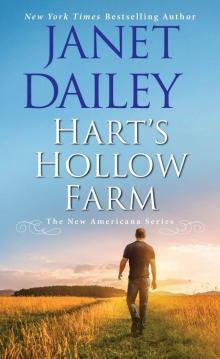 Hart's Hollow Farm
Hart's Hollow Farm Holding Out for Christmas
Holding Out for Christmas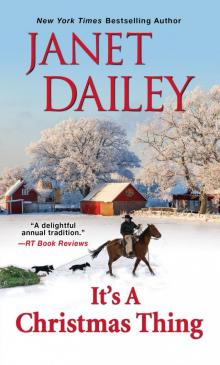 It's a Christmas Thing
It's a Christmas Thing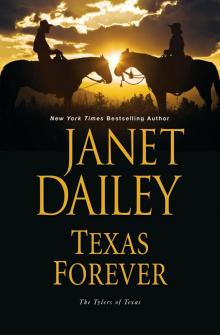 Texas Forever
Texas Forever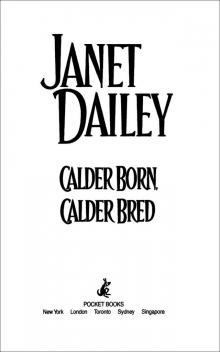 Calder Born, Calder Bred
Calder Born, Calder Bred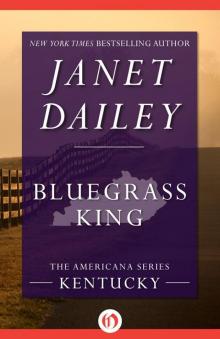 Bluegrass King (The Americana Series Book 17)
Bluegrass King (The Americana Series Book 17)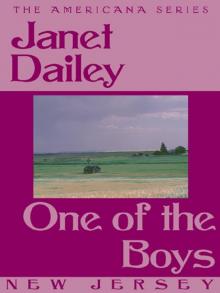 One of the Boys
One of the Boys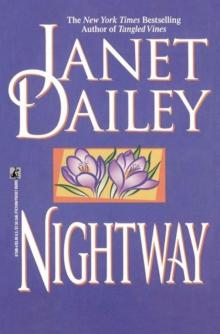 Nightway
Nightway This Calder Sky
This Calder Sky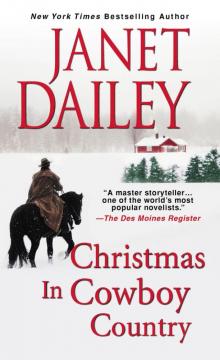 Christmas in Cowboy Country
Christmas in Cowboy Country The Widow and the Wastrel
The Widow and the Wastrel Separate Cabins
Separate Cabins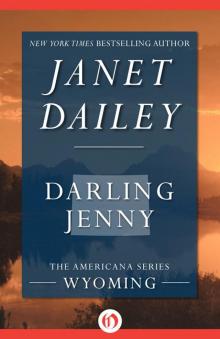 Darling Jenny
Darling Jenny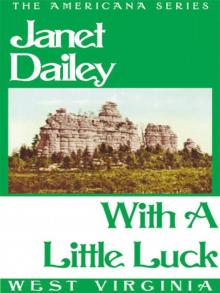 With a Little Luck
With a Little Luck The Thawing of Mara
The Thawing of Mara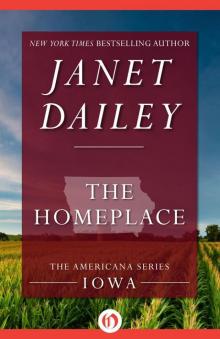 The Homeplace (The Americana Series Book 15)
The Homeplace (The Americana Series Book 15)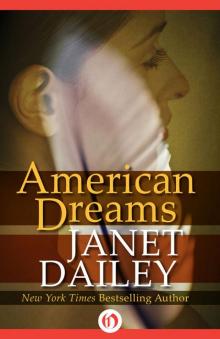 American Dreams
American Dreams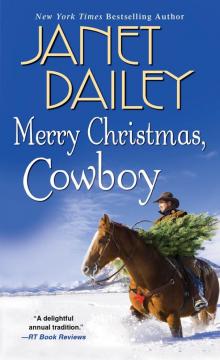 Merry Christmas, Cowboy
Merry Christmas, Cowboy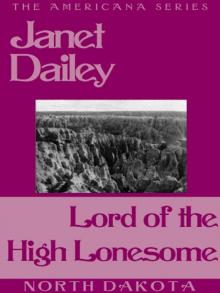 Lord of the High Lonesome
Lord of the High Lonesome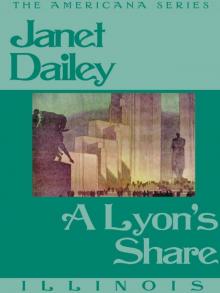 A Lyon's Share
A Lyon's Share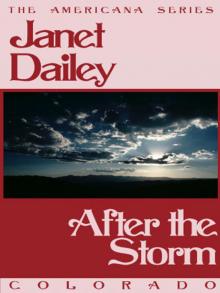 After the Storm
After the Storm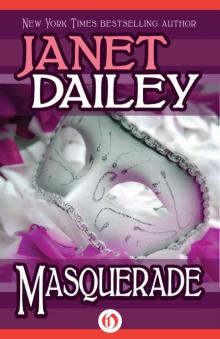 Masquerade
Masquerade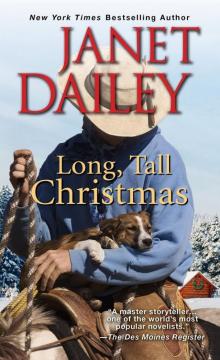 Long, Tall Christmas
Long, Tall Christmas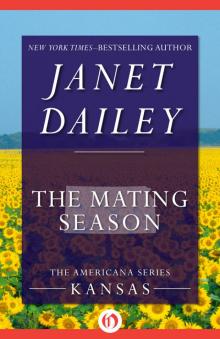 The Mating Season
The Mating Season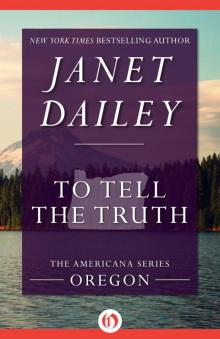 To Tell the Truth
To Tell the Truth A Land Called Deseret
A Land Called Deseret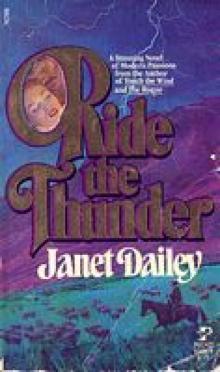 Ride the Thunder
Ride the Thunder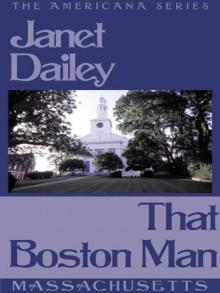 That Boston Man
That Boston Man Wild and Wonderful
Wild and Wonderful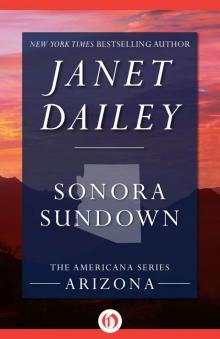 Sonora Sundown: Arizona (The Americana Series Book 3)
Sonora Sundown: Arizona (The Americana Series Book 3)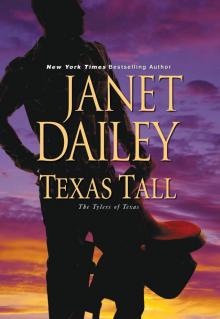 Texas Tall
Texas Tall Giant of Mesabi
Giant of Mesabi The Bride of the Delta Queen
The Bride of the Delta Queen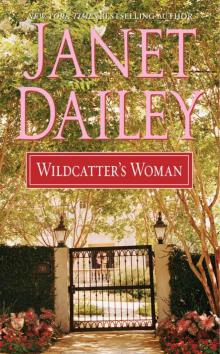 Wildcatter's Woman
Wildcatter's Woman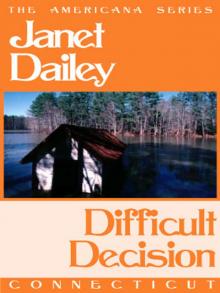 Difficult Decision
Difficult Decision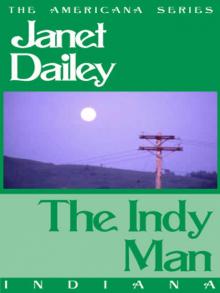 The Indy Man
The Indy Man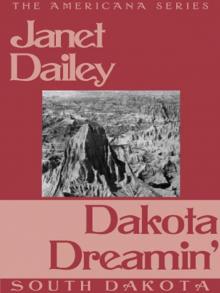 Dakota Dreamin'
Dakota Dreamin' Kona Winds
Kona Winds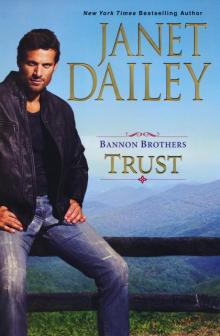 Bannon Brothers
Bannon Brothers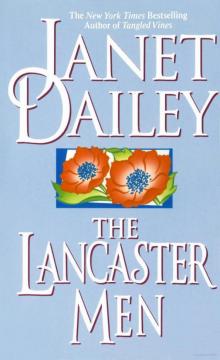 The Lancaster Men
The Lancaster Men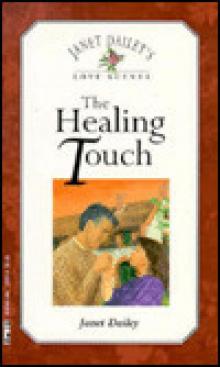 janet dailey- the healing touch
janet dailey- the healing touch Strange Bedfellow
Strange Bedfellow Leftover Love
Leftover Love Big Sky Country
Big Sky Country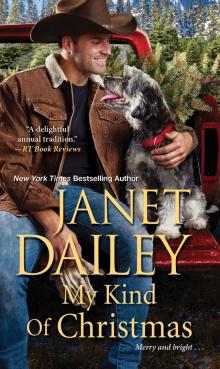 My Kind of Christmas
My Kind of Christmas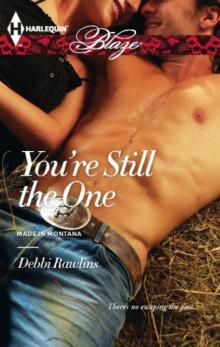 You're Still The One
You're Still The One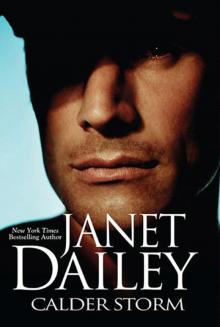 Calder Storm
Calder Storm Calder Pride
Calder Pride Low Country Liar
Low Country Liar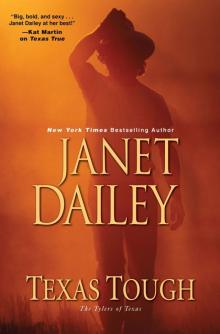 Texas Tough
Texas Tough Foxfire Light
Foxfire Light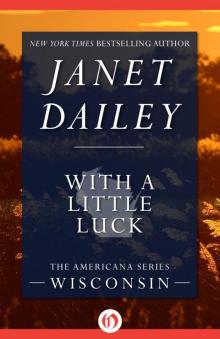 With a Little Luck (The Americana Series Book 49)
With a Little Luck (The Americana Series Book 49)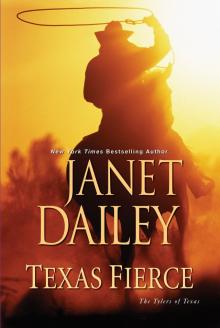 Texas Fierce
Texas Fierce Sentimental Journey
Sentimental Journey The Pride of Hannah Wade
The Pride of Hannah Wade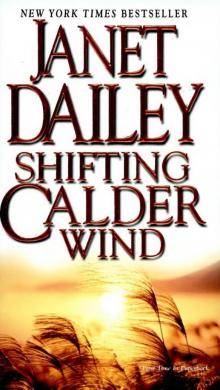 Shifting Calder Wind
Shifting Calder Wind Santa In Montana
Santa In Montana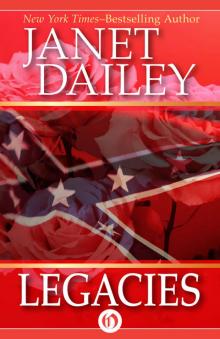 Legacies
Legacies Land of Enchantment
Land of Enchantment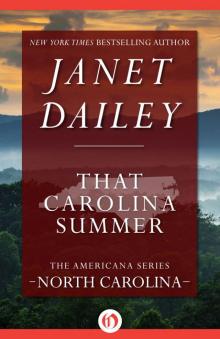 That Carolina Summer (North Carolina)
That Carolina Summer (North Carolina) Reilly's Woman
Reilly's Woman Refuge Cove
Refuge Cove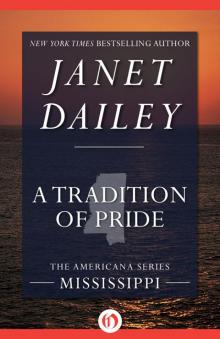 A Tradition of Pride
A Tradition of Pride Bed of Grass
Bed of Grass To Santa With Love
To Santa With Love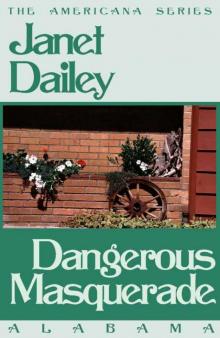 Dangerous Masquerade
Dangerous Masquerade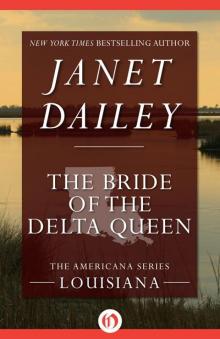 The Bride of the Delta Queen (The Americana Series Book 18)
The Bride of the Delta Queen (The Americana Series Book 18)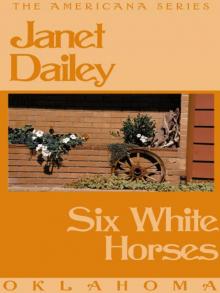 Six White Horses
Six White Horses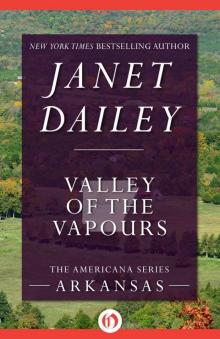 Valley of the Vapours (The Americana Series Book 4)
Valley of the Vapours (The Americana Series Book 4)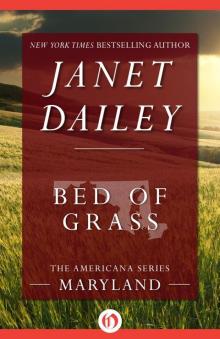 Bed of Grass (The Americana Series Book 20)
Bed of Grass (The Americana Series Book 20)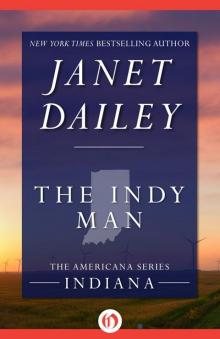 The Indy Man (The Americana Series Book 14)
The Indy Man (The Americana Series Book 14)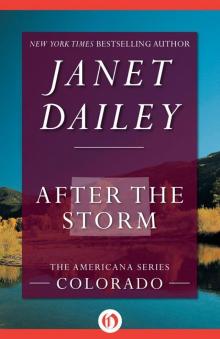 After the Storm (The Americana Series Book 6)
After the Storm (The Americana Series Book 6)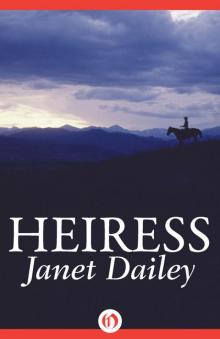 Heiress
Heiress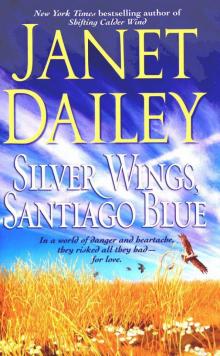 Silver Wings, Santiago Blue
Silver Wings, Santiago Blue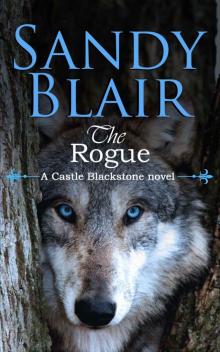 The Rogue
The Rogue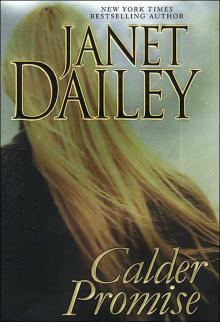 Calder Promise
Calder Promise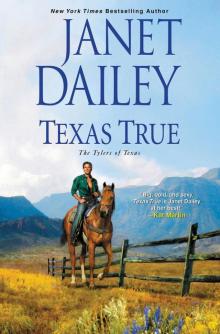 Texas True
Texas True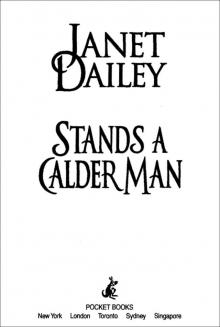 Stands a Calder Man
Stands a Calder Man Fiesta San Antonio
Fiesta San Antonio Fire and Ice
Fire and Ice For the Love of God
For the Love of God The Ivory Cane
The Ivory Cane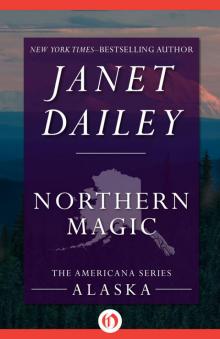 Northern Magic
Northern Magic The Glory Game
The Glory Game The Homeplace
The Homeplace The Great Alone
The Great Alone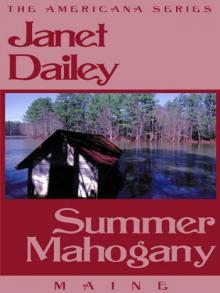 Summer Mahogany
Summer Mahogany Tangled Vines
Tangled Vines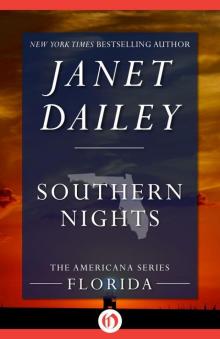 Southern Nights: Florida (The Americana Series Book 9)
Southern Nights: Florida (The Americana Series Book 9)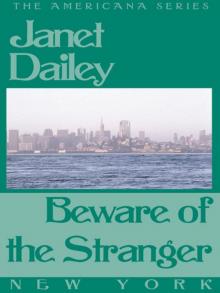 Beware of the Stranger
Beware of the Stranger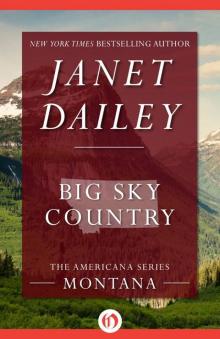 Big Sky Country: Montana (The Americana Series Book 26)
Big Sky Country: Montana (The Americana Series Book 26)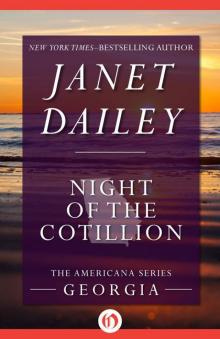 Night of the Cotillion: Georgia (The Americana Series Book 10)
Night of the Cotillion: Georgia (The Americana Series Book 10)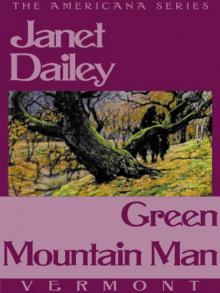 Green Mountain Man
Green Mountain Man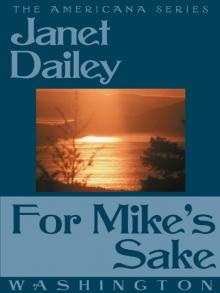 For Mike's Sake
For Mike's Sake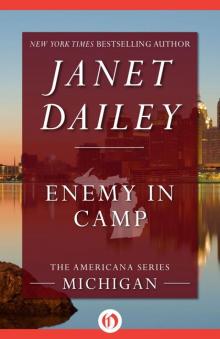 Enemy in Camp (The Americana Series Book 22)
Enemy in Camp (The Americana Series Book 22)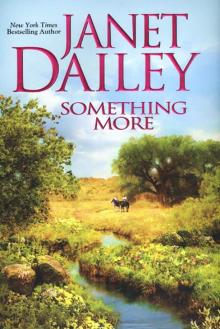 Something More
Something More Rivals
Rivals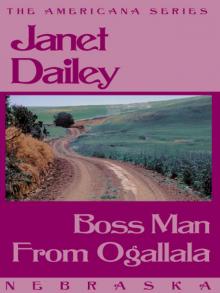 Boss Man from Ogallala
Boss Man from Ogallala Just a Little Christmas
Just a Little Christmas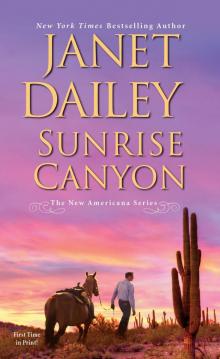 Sunrise Canyon
Sunrise Canyon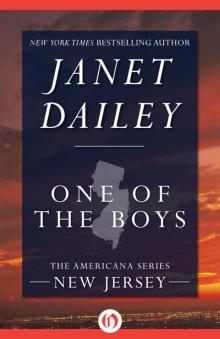 One of the Boys (New Jersey)
One of the Boys (New Jersey)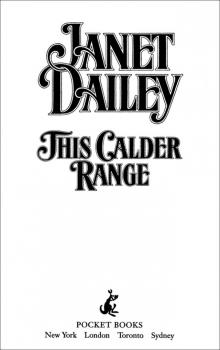 This Calder Range
This Calder Range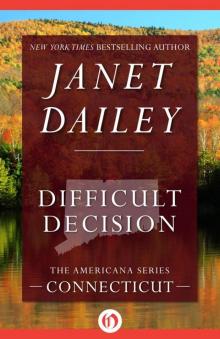 Difficult Decision: Connecticut (The Americana Series Book 7)
Difficult Decision: Connecticut (The Americana Series Book 7)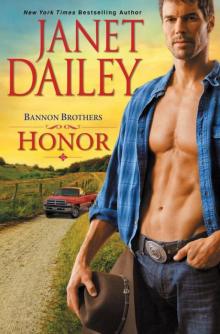 Honor
Honor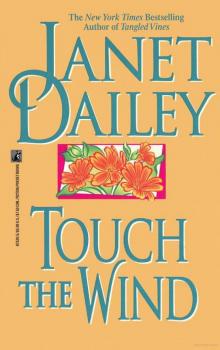 Touch the Wind
Touch the Wind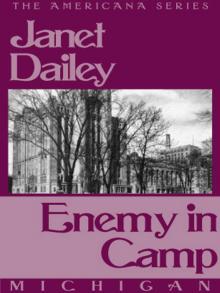 Enemy in Camp
Enemy in Camp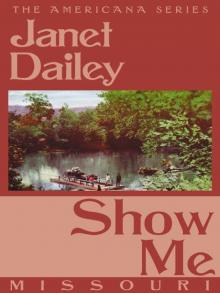 Show Me
Show Me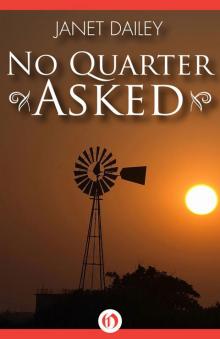 No Quarter Asked
No Quarter Asked The Second Time
The Second Time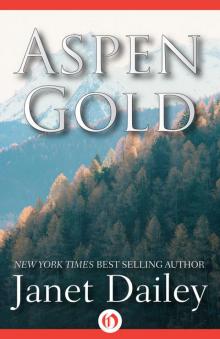 Aspen Gold
Aspen Gold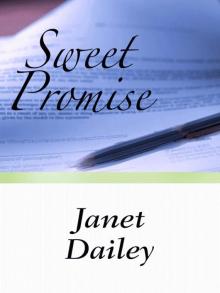 Sweet Promise
Sweet Promise Triumph
Triumph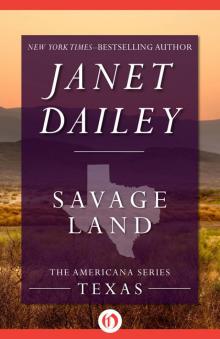 Savage Land
Savage Land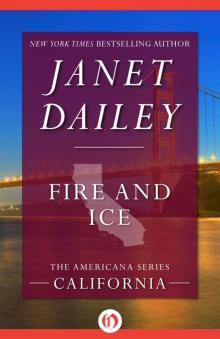 Fire and Ice (The Americana Series Book 5)
Fire and Ice (The Americana Series Book 5)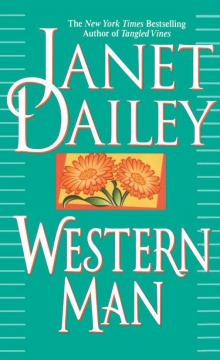 Western Man
Western Man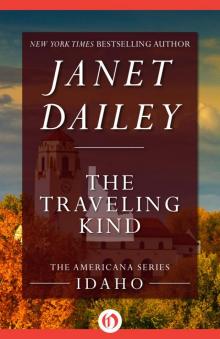 The Traveling Kind
The Traveling Kind The Hostage Bride
The Hostage Bride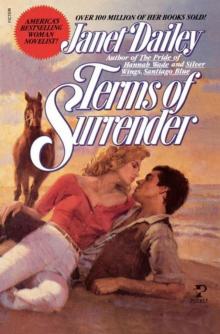 Terms of Surrender
Terms of Surrender Tidewater Lover
Tidewater Lover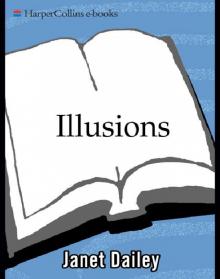 Illusions
Illusions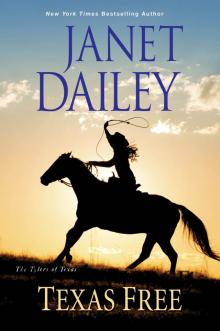 Texas Free
Texas Free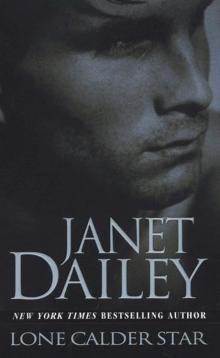 Lone Calder Star (Calder Saga Book 9)
Lone Calder Star (Calder Saga Book 9)